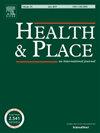密苏里农村人对痛苦的看法:“我喜欢掌控自己的生活”。
IF 4.1
2区 医学
Q1 PUBLIC, ENVIRONMENTAL & OCCUPATIONAL HEALTH
引用次数: 0
摘要
本研究考察了密苏里州农村居民对疼痛的概念以及他们对药物和非药物疼痛管理策略的态度。研究样本包括25名(N = 25)居住在密苏里州农村县的社区居民。研究人员进行了半结构化的定性访谈,并应用主题分析技术来解释数据。结果表明,参与者通常将疼痛视为一种限制,并将其经历和治疗与虚弱联系起来。他们对药物疼痛管理的态度受到普遍存在的社会耻辱感(尤其是阿片类镇痛药)、对失去控制的恐惧以及对药物的普遍厌恶的影响。相比之下,他们对非药物疼痛管理的态度显然是积极的。参与者表达了对自然干预的强烈偏好,并强调采取预防措施来管理疼痛。研究结果支持了先前发表的研究,即农村居民可能会尽量减少医疗干预,优先考虑自给自足。为了有效地解决这些文化规范,建议建立牢固的医患关系和多模式疼痛管理方法,包括非阿片类药物策略。本文章由计算机程序翻译,如有差异,请以英文原文为准。
Rural Missourians’ perspectives on pain: “I like to be in control of my life”
This study examined rural Missourians’ conceptualization of pain and their attitudes toward pharmacological and non-pharmacological pain management strategies. The study sample consisted of twenty-five (N = 25) community-dwelling adults residing in rural Missouri counties. Researchers conducted semi-structured qualitative interviews and applied thematic analysis techniques to interpret the data. Results indicated that participants often viewed pain as a limitation and associated its experience and treatment with weakness. Their attitudes toward pharmacological pain management were influenced by a prevalent social stigma surrounding pain medications (particularly opioid analgesics), fear of losing control, and a general aversion to medications. In contrast, their attitudes toward non-pharmacological pain management were decidedly positive. Participants expressed a strong preference for natural interventions and emphasized preventive measures to manage pain. Study findings support previously published research suggesting that rural individuals may minimize medical interventions and prioritize self-sufficiency. To address these cultural norms effectively, a strong clinician-patient relationship and multimodal pain management approaches that incorporate non-opioid strategies are recommended.
求助全文
通过发布文献求助,成功后即可免费获取论文全文。
去求助
来源期刊

Health & Place
PUBLIC, ENVIRONMENTAL & OCCUPATIONAL HEALTH-
CiteScore
7.70
自引率
6.20%
发文量
176
审稿时长
29 days
期刊介绍:
he journal is an interdisciplinary journal dedicated to the study of all aspects of health and health care in which place or location matters.
 求助内容:
求助内容: 应助结果提醒方式:
应助结果提醒方式:


